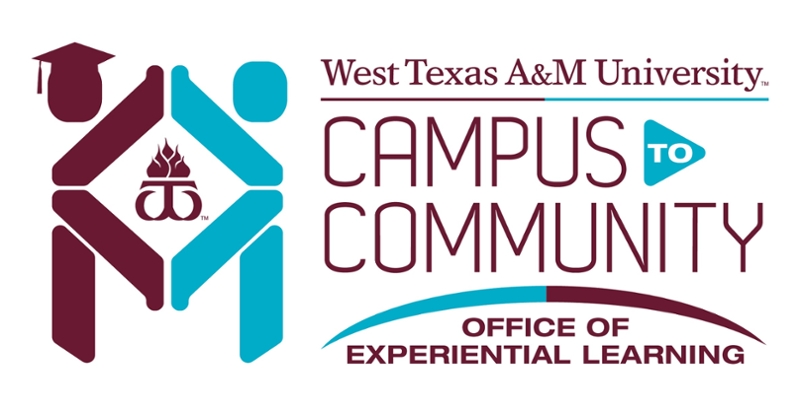Purpose and Overview
Campus to Community: Office of Experiential Learning (C2C) emerged as the topic selected for West Texas A&M University's Quality Enhancement Plan (QEP). Topic selection was a multi-year process that included students, faculty, staff, and community members and focused on improving student learning. The C2C Faculty Fellow initiative is designed to support efforts in developing and implementing authentic, real world experiences to supplement classroom instruction and is in keeping with the goal of the QEP: To use experiential learning as the vehicle to develop students' capacity to transfer theory into practice in situations, communities, and environments while at WT and beyond.
Eligibility
All full-time university faculty members who wish to develop or redesign an existing course curriculum to include an Experiential Learning Opportunity (ELO) are eligible to apply for up to $2,500 in course development support funds. Experiential Learning Opportunities have three pathways: undergraduate research, service learning, and career-focused experiences. They may occur in one of the following venues: locally, regionally, nationally, study abroad, and/or distance learning. The commonality within these opportunities is to engage our students in challenging and meaningful experiences that aid in their intellectual and personal development and empower our graduates to advance in their chosen field, to impact their communities, and to pursue excellence.
Program Requirements
Faculty submissions will indicate the course which will be created/converted into a C2C course. This course will then become a C2C designated course and as such, will be required to align with the QEP Student Learning Outcomes (SLOs).
Learning Objectives:
SLO 1: Students will engage in structured reflection throughout the experiential learning process.
- Assess what they have learned about themselves as an individual (self-awareness).
- Assess what they have learned about themselves as members of the broader community (cultural self-awareness).
- Refer to previous learning and apply knowledge and skills in novel situations.
- Connect prior learning to changes resulting from the experiential learning process.
- Communicate clearly through effective use of format, language, and/or visual representation.
SLO 2: Student will integrate their knowledge, skills, and dispositions (attitudes, beliefs, and ethics) acquired through coursework within experiential learning environments.
- Connect relevant experience and academic knowledge.
- Make connections across disciplines and perspectives.
- Adapt and apply skills, abilities, theories, or methodologies gained in one situation to new situations.
- Communicate clearly through effective use of format, language, and/or visual representation.
- Demonstrate a developing sense of self as a learner, building on prior experiences to respond to new and challenging contexts (may be evident in self-assessment, reflective, or creative work).
Use of the designated course assessment tool is required. Training for use of designated course assessment tool will be provided by the Office of Experiential Learning.
Recipient Expectations
In addition to the program requirements, faculty members receiving funding through the C2C Faculty Fellowship initiative will agree to the following:
1. Submit assessment results to Office of Experiential Learning at the end of each semester including an action plan for future improvements.
2. Faculty Fellows will participate in campus-wide open discussion forums to share their experiences with the WT community.
3. Comply with WTAMU and TAMUS policies and procedures for purchasing, travel, inventory, and budget management.
4. In 2nd year, Faculty Fellows will participate in C2C development events to share their experiences, outcomes, and mentor new fellows.
Application Form

